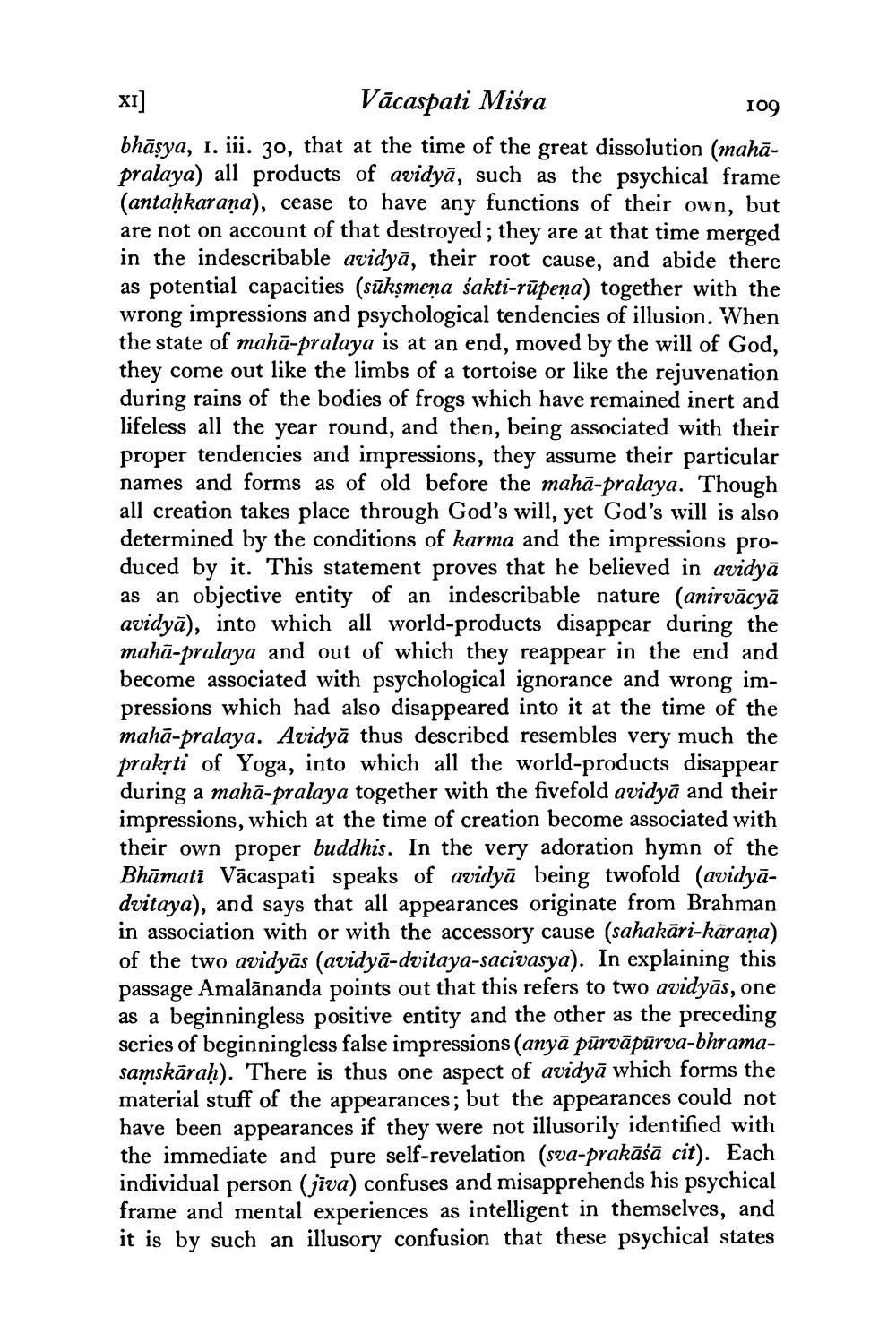________________
XI] Vācaspati Miśra
109 bhāsya, 1. iii. 30, that at the time of the great dissolution (mahāpralaya) all products of avidyā, such as the psychical frame (antahkarana), cease to have any functions of their own, but are not on account of that destroyed; they are at that time merged in the indescribable avidyā, their root cause, and abide there as potential capacities (sūkşmeņa sakti-rūpeṇa) together with the wrong impressions and psychological tendencies of illusion. When the state of mahā-pralaya is at an end, moved by the will of God, they come out like the limbs of a tortoise or like the rejuvenation during rains of the bodies of frogs which have remained inert and lifeless all the year round, and then, being associated with their proper tendencies and impressions, they assume their particular names and forms as of old before the mahā-pralaya. Though all creation takes place through God's will, yet God's will is also determined by the conditions of karma and the impressions produced by it. This statement proves that he believed in avidyā as an objective entity of an indescribable nature (anirvācyā avidyā), into which all world-products disappear during the mahā-pralaya and out of which they reappear in the end and become associated with psychological ignorance and wrong impressions which had also disappeared into it at the time of the mahā-pralaya. Avidyā thus described resembles very much the prakyti of Yoga, into which all the world-products disappear during a mahā-pralaya together with the fivefold avidyā and their impressions, which at the time of creation become associated with their own proper buddhis. In the very adoration hymn of the Bhāmati Vācaspati speaks of avidyā being twofold (avidyādvitaya), and says that all appearances originate from Brahman in association with or with the accessory cause (sahakāri-kāraṇa) of the two avidyās (avidyā-dvitaya-sacivasya). In explaining this passage Amalānanda points out that this refers to two avidyās, one as a beginningless positive entity and the other as the preceding series of beginningless false impressions (anyā pārvāpūrva-bhramasamskāraḥ). There is thus one aspect of avidyā which forms the material stuff of the appearances; but the appearances could not have been appearances if they were not illusorily identified with the immediate and pure self-revelation (sva-prakāśā cit). Each individual person (jiva) confuses and misapprehends his psychical frame and mental experiences as intelligent in themselves, and it is by such an illusory confusion that these psychical states




